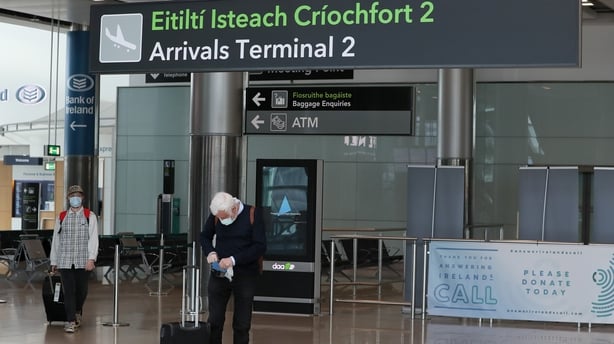The confusion over whether those who receive Pandemic Unemployment Payment (PUP) are allowed to travel abroad is the result of a blurring between what is advisable and legally enforceable, according to the director of Data Compliance Europe.
Speaking on RTÉ's Morning Ireland, solicitor Simon McGarr explained the confusion stems from the recently introduced change to a 2007 law that allowed people to go on holidays and continue to receive jobseeker’s payments.
"There's been an awful lot of occasions in recent months where there's been a blurring between a question of advice and the question of what’s legally enforceable," Mr McGarr told the programme.
"In extraordinary circumstances there can be situations when the government should say 'you should do this’ – and they might express that forcefully – but they won’t attempt to try and act as though their advice had the force of law," he said.
"Here we can see there’s an ongoing project by the Department of Social Welfare to intervene with people going on holidays and to give advice, which is explicitly only advice and allows for people to make their own judgement, to give that the force of law by way of delegated legislation," Mr McGarr continued.
It emerged over the weekend that 104 cases of PUP were halted as a result of airport checks.
The Department of Social Protection responded by saying the vast majority of PUP cases stopped as a result of the compliance checks at airports relate to individuals leaving the country permanently.

This morning, Mr McGarr explained that a ministerial order signed on 10 July, which altered the law, did not prevent people from going on holidays, but that that their travel must fall in line with the Government travel advisory.
He added that there seems to be confusion over whether this move made it possible to stop people from travelling or whether it was a fraud prevention or a public health issue.
Mr McGarr further pointed out that gardaí did not attempt to enforce laws before they came in, despite strong advice urging people not to travel far from their homes.
He said: "There are gardaí and social welfare officers who are permitted to attend the airport if they believe there is 'fraud going on'."
However, that information, he said, also comes "via the airlines to the Department of Justice that can be shared solely to help combat terrorist offences".
Mr McGarr said it would be a "very strange and significant situation" if the wide passenger name register system, EU PNR, that is only intended to be used for serious offences and terrorism, was in some way being used for public health.
Even if used with the best of intentions, he said, it would have significant European wide consequences if that were the case.
We need your consent to load this rte-player contentWe use rte-player to manage extra content that can set cookies on your device and collect data about your activity. Please review their details and accept them to load the content.Manage Preferences

